The Big Lies That Are Hurting People That People LOVE To Believe.
Five best-selling authors, Speaker Hall of Fame recipients, internationally-acclaimed business consultants and best buddies give their insights on business and life.
From Mark Sanborn:
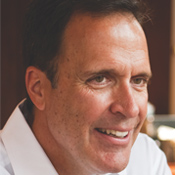
“You can have it all.” No, you really can’t.
Some of the unhappiest people I know are those who bought into that whopper. They lack priorities, choose uncomplimentary or conflicting values and wear themselves out pursuing every activity.
Try eating all you want and keeping your weight at a healthy level. Try traveling non-stop for business or pleasure and have meaningful relationships at home. Try working long hours seven days a week and see how much leisure you’ll enjoy.
Everything of importance has value, and value has an associated cost. Trying to “have it all” doesn’t acknowledge the reality of time constraints. It is spending the currency of your life like a drunken sailor.
The bad news is that you can’t have it all.
The good news is that when you know what’s important, you don’t want it all anyway.
Broaden your focus too much by trying to “have it all” and you’ll get only a tiny bit if anything at all.
Narrow your focus and you can go richer and deeper in those areas of your life that truly matter.
Mark Sanborn is president of Sanborn & Associates, Inc., an idea studio for leadership development. He is an award-winning speaker bestselling author of books including, The Fred Factor. For more information and free resources, visit www.marksanborn.com.
From Joe Calloway:
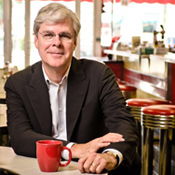
The shortcut.
What bothers me is that so many people spend their money on the promise of short cuts to success.
There aren’t any short cuts.
I see “How To Make A Fortune On The Internet” programs that begin with the premise of
“First, get 100,000 followers…….THEN all you have to do is follow my easy plan to make a million dollars in a year.”
What they skip over is that to get those 100,000 followers, you have to have something to say that is so valuable, so compelling, that people feel they can’t afford to miss one word of it – ever. That takes experience.
I do coaching with professional speakers, and the thing we always come back to is simply this: value creation. Public Notice to my potential speaking clients: “I have NO shortcuts for you.”
As many, including my buddy Mark Sanborn, have said, it generally takes 15 years to become an “overnight success.”
You can’t become an expert in a week. Put in the time, do the work, create value. Don’t learn the “tricks of the trade.” Learn the trade.
The only people that get rich from short cuts….are the people selling the short cuts.
Joe Calloway helps great companies get even better. www.JoeCalloway.com
From Randy Pennington:
I grew up hearing every motivational message imagined or printed in the Reader’s Digest. I heard lots of advice that isn’t necessarily true. Consider these:
- Laughter is the best medicine. I want great drugs when I’m in pain not a standup routine.
- Better safe than sorry. Mark Twain said: “Twenty years from now you will be more disappointed by the things that you didn’t do than by the ones you did do.” I like his idea better.
- It’s never too late to pursue your dreams. I grew up dreaming of playing Division I college basketball and replacing Ringo as the drummer in the Beatles. I am too late for both.
- Attitude is everything. No. Talent, knowledge, and skill count, too.
- Great minds think alike. The older I get the more I realize that we need great minds who view the world through a different lens rather than the same one.
Here’s my takeaway: Any motivational or business guru who tells you that the secret to your success is doing exactly what they say without questioning its application to your situation should be avoided … except for the Five Friends. Our ideas are timeless pearls of wisdom.
Randy Pennington helps leaders deliver positive results in a world of accelerating change. To find out more, go to www.penningtongroup.com.
From Larry Winget:
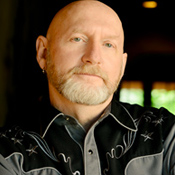
Passion. Passion is defined as “an uncontrollable emotion.” Do you want an uncontrollable emotion anywhere near your business? Not me.
If you need quadruple bypass surgery, do you want a passionate surgeon or one who is damn good at surgery? How about a waiter? I don’t want a passionate waiter, I want a waiter who is great at his job. I don’t need any emotion involved, especially one that is uncontrolled. I only want excellence and hard work from the people I do business with. They don’t have to like it, love it, enjoy it or be passionate about it, just damn good at it. I know too many who are passionate: passionately incompetent.
Some will argue that passion is the fuel that lights the fire of hard work and excellence. Save it. I’ve heard it all before. I am good at what I do because I approach the fiduciary commitment that I have to my clients with integrity. I am hired to be good and I am committed to being good because they are paying me to be good. Very simple. No passion. I have passion for my family and I’m damn good at my job.
Larry Winget, the Pitbull of Personal Development®, is a six-time NYT/WSJ bestselling author, social commentator and appears regularly on many national television news shows. To find out more, go to www.LarryWinget.com.
From Scott McKain:
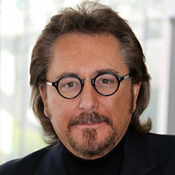
The most ridiculous concept ever foisted upon gullible professionals is the idiotic maxim: “You can’t manage what you can’t measure.”
(My vote for second worst: “Getting the right people on the bus is more important than where the bus is going.” That’s moronic. The “right people” won’t get on if they don’t know where the hell the bus is headed. I digress…)
Leaders are constantly challenged to manage the immeasurable. Employee attitudes, marketplace opportunities, and customer engagement aren’t exclusively intended for an Excel spreadsheet. Leadership is art and science; insight and data. The distinctive leader is able to use head and heart to drive greater performance.
When we integrate this ridiculous “we can only manage what we can measure” approach into our culture, it means we assume the only elements that matter to the organization are aspects that lend themselves to measurement.
A restaurant, therefore, focuses upon speed of food delivery (measurable) rather than friendly service (not) – when it’s the combination of both that is essential for a superior customer experience. The same is true for your business.
Interestingly, the “management/measurement” quote is often incorrectly attributed to W. Edwards Deming – who insisted instead, “The most important things cannot be measured.”
Scott McKain teaches how organizations and individual professionals can create distinction in their marketplace, and deliver the “Ultimate Customer Experience ®.” For more information: www.ScottMcKain.com

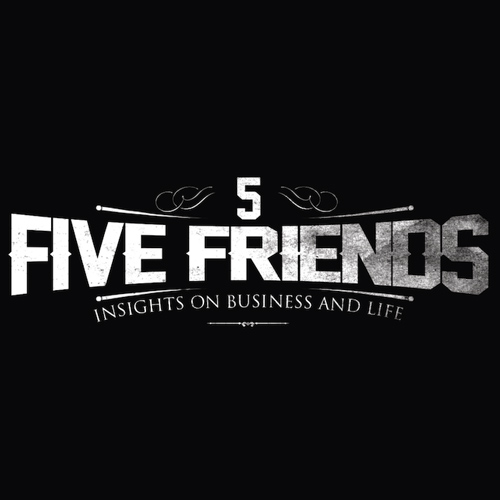
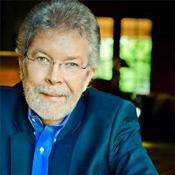

I loved these! I know they might have started a tongue-in-cheek but the truth is as you state it! And it is a shame that most people want the short cuts or the easy way. When we all know it is not. Thansk for sharing. Thanks for keeping us headed in the right direction with the right expectations. I think you might find my blogs along the same line.
Thank you all, gentlemen. As usual, wonder written pieces of advice!
The power of thoughts of 5… fantastic wisdom.
How about the saying “Showing up is half the battle”…if you have trouble showing up, I can not imagine the result of that person’s effort is going to be that great…I have too many people in my company that feel that feel like the fact they showed up should be enough to be rewarded…
Such good discussion here – simple, plain, honest, ‘tell it like it is’ wisdom. Thanks, gentlemen! Mark – the ‘you can have it all’ comment really caught my attention and I totally agree with your perspective. You can……but not all at the same time. And, as we age, we do recognize what’s of true value.
Love your blog posts. Keep ’em coming!
Pat Mussieux
You guys NAILED IT!…I especially like the comment “The only people that get rich from shortcuts, are the ones selling the shortcuts” SUCCESS DOES HAVE A PRICE! Only lazy people try to get around that price and end up going broke. Thanks guys…this blog was another EYE-OPENER!
Brilliant advice all round.
Funnily enough, I’ve often considered the unmeasurable as just as vital as the cold hard stats. After all, you really can’t measure how delighted customers are when they buy the latest product or service.
Having said that, I’m sure Apple measure their success by number of units sold and not necessarily by how long the queues were before the new i-whatever launch or how much the customers lurve their new gizmo.
Interestingly enough though, being good at what you do seems to be what many companies lack. Thus, just doing what you say you’re going to do is often enough to set you apart from your competition.
Huge thanks for such a great post.
Karl